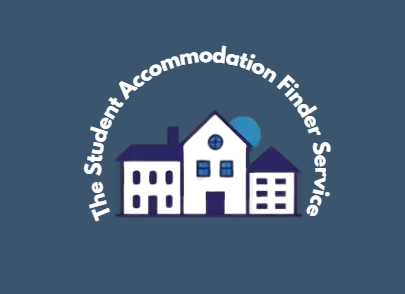🏠 Choosing Between Private Halls and Shared Student Accommodation
Selecting the right accommodation is a pivotal decision in your university journey. Whether you're transitioning from first-year halls or seeking a change, understanding your options is crucial. Let's delve into the distinctions between private halls and shared student housing to help you make an informed choice.
🏢 Private Halls: Modern Living with Added Perks
Overview:
Private halls are purpose-built student accommodations managed by private companies. They often mirror university halls in structure but come with enhanced amenities and services.
Key Features:
En-suite Bedrooms: Enjoy the privacy of your own bathroom. High-Speed Internet: Stay connected with reliable Wi-Fi. Inclusive Bills: Rent typically covers utilities, simplifying budgeting. On-site Facilities: Access to gyms, study areas, and communal lounges. Enhanced Security: Features like CCTV and secure entry systems ensure safety. Laundry Services: Convenient on-site laundry facilities. Flexible Room Options: Choose from studios to shared flats.
Pros:
All-Inclusive Living: With bills included, managing finances becomes straightforward. Community Engagement: Organised events foster a sense of belonging.Maintenance Support: On-site teams handle repairs promptly.
Cons:
Higher Costs: Premium amenities come at a price. Less Autonomy: Rules and regulations may be stricter than private rentals.
Ideal For:
Students seeking a hassle-free living experience with modern amenities and a built-in community.
🏡 Shared Student Housing: Independence and Affordability
Overview:
Shared student houses or flats are privately rented accommodations where students live together, sharing common areas like kitchens and living rooms.
Key Features:
Varied Property Types: From terraced houses to modern flats. Shared Responsibilities: Housemates collectively manage bills and chores. Personalised Spaces: Opportunity to personalise your room and shared areas.
Pros:
Cost-Effective: Generally more affordable than private halls. Greater Independence: Freedom to set house rules and routines. Real-World Experience: Prepares students for post-university living.
Cons:
Variable Quality: Property conditions can vary; thorough viewing is essential. Shared Bills: Requires coordination among housemates for timely payments. Potential for Disputes: Living with others necessitates compromise and communication.
Ideal For:
Students desiring independence, flexibility, and a more authentic living experience.
📝 Tenancy Agreements: Understanding Your Commitments
When entering into a rental agreement, it's vital to comprehend the type of tenancy:
Joint Tenancy: All tenants sign a single agreement and share equal responsibility. If one tenant leaves, others may be liable for the full rent.
Individual Tenancy: Each tenant signs a separate agreement, responsible only for their portion of the rent.
Note:
In England & Wales most student rentals use Assured Shorthold Tenancy (AST) agreements, typically lasting 12 months. In Scotland there is a different system (See next section). Always read contracts thoroughly and seek clarification when needed.
📝 Tenancy Agreements in Scotland: Understanding the Private Residential Tenancy (PRT)
Since December 2017, most new tenancies in Scotland fall under the
Private Residential Tenancy (PRT), offering simplicity, security, and flexibility for both tenants and landlords.
🔑 Key Features of a PRT:
No Fixed End Date: Tenancies are open-ended, meaning they continue until the tenant wishes to leave or the landlord uses one of the 18 grounds for eviction.
Notice Periods: Tenants must give at least 28 days' notice when they wish to leave. Landlords must give 28 or 84 days' notice, depending on how long the tenant has lived in the property and the eviction ground used.
Rent Increases: Landlords can only raise the rent once in a 12-month period, and must give at least three months’ notice in writing.
Model Tenancy Agreement: The Scottish Government provides a standard tenancy agreement which clearly sets out the rights and responsibilities of both parties.
🛡️ Tenant Rights & Responsibilities:
Deposit Protection: Your deposit must be placed in a government-approved tenancy deposit scheme.
Repairs & Safety: Landlords are legally obliged to maintain the property in a safe and liveable condition.
Quiet Enjoyment: You have the right to live in the property without unnecessary interference.
📝 Tenancy Agreements in Scotland: Understanding the Private Residential Tenancy (PRT)
Start Early: Begin your search well in advance to secure the best options.
Budget Wisely: Factor in all potential costs, including utilities and commuting.
Visit Properties: Whenever possible, view accommodations in person.
Check Accreditation: Look for properties accredited by student housing organisations.
Seek Recommendations: Consult university housing services or fellow students for trusted options.
🧭 Making Your Decision
Your choice between private halls and shared housing hinges on personal preferences, budget, and desired lifestyle. Consider what's most important to you:
Community vs. Independence
Amenities vs. Affordability
Structure vs. Flexibility
Reflect on your priorities to select the accommodation that best aligns with your university experience goals.


